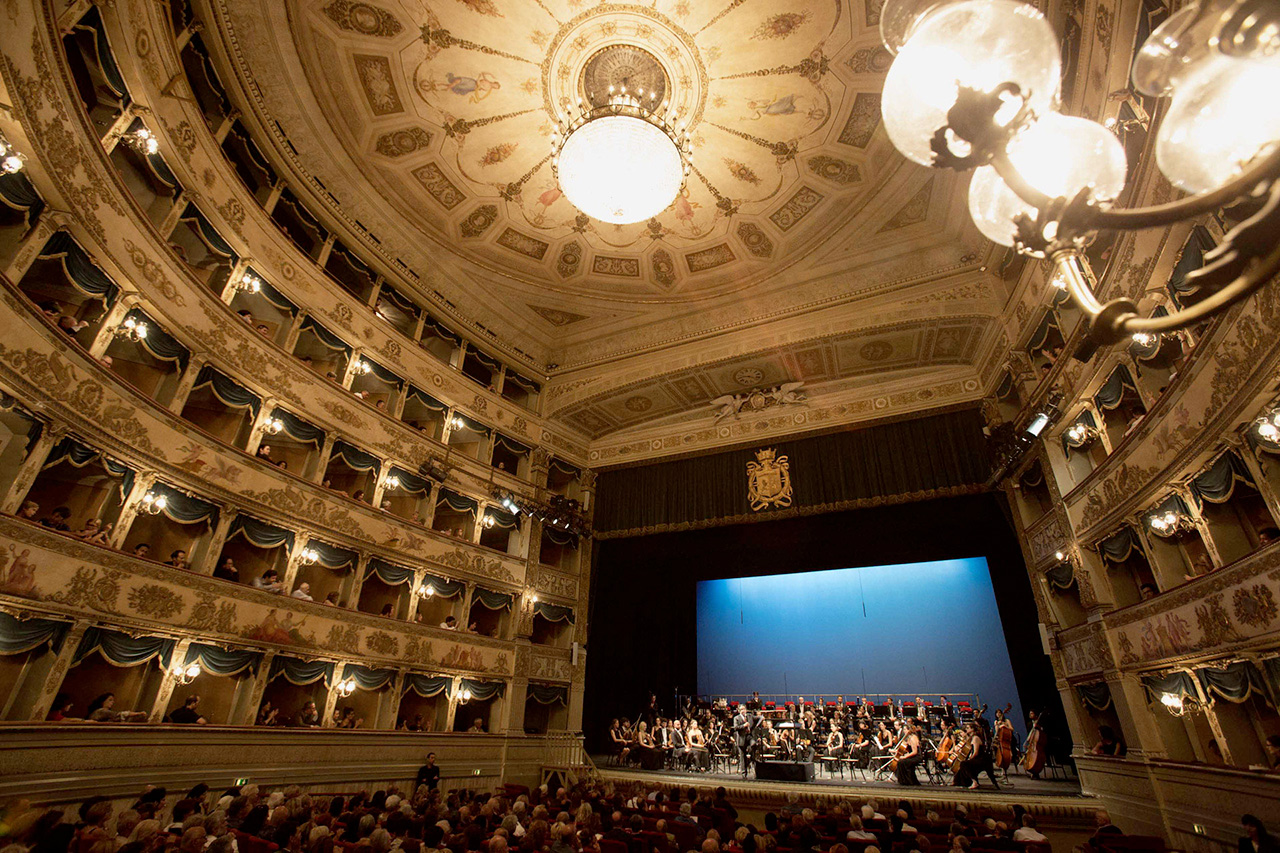Ballet de l’Opéra de Lyon
Cunningham Forever
Beach Birds
costume and light design Marsha Skinner
music by John Cage
assistant choreographer Carol Teitelbaum
Gavin Bryars Ensemble
Gavin Bryars piano and rainstick
Audrey Riley rainstick
James Woodrow rainstick
Morgan Goff violin, viola and rainstick
performers Marie Albert, Jade Diouf, Paul Gregoire, Jackson Haywood, Amanda Lana, Almudena Maldonado, Albert Nikolli, Roylan Ramos-Hechavarria, Anna Romanova, Marta Rueda, Kaine Ward
maîtres de ballet Pierre Advokatoff, Jocelyne Mocogni
Biped
set design and holograms Shelley Eshkar e Paul Kaiser
costume design Suzanne Gallo
lighting design Aaron Copp
music by Gavin Bryars
assistant choreographers Jamie Scott, Andrea Weber
Gavin Bryars Ensemble
Gavin Bryars double bass, electronic keyboard, piano
Morgan Goff viola
Audrey Riley cello
James Woodrow electric guitar
performers Marie Albert, Kristina Bentz, Noëllie Conjeaud, Jeshua Costa, Katrien De Bakker, Tyler Galster, Mikio Kato, Amanda Lana, Almudena Maldonado, Albert Nikolli, Leoannis Pupo-Guillen, Anna Romanova, Marta Rueda, Giacomo Todeschi
maîtres de ballet Jocelyne Mocogni, Amandine François
with the support of Dance Reflections di Van Cleef & Arpels
music BIPED
Gavin Bryars © Schott Music GmbH & Co. KG
Italian exclusive
A genius is forever, and a diptych is enough to prove it—which is what the Ballet de l’Opéra de Lyon intend to do with their homage to Merce Cunningham. From the extensive repertoire of the father of contemporary dance, they selected the dazzling Biped (1999), a masterpiece in which the 80-year-old choreographer interacted with technology to reinvent himself after the passing of his lifelong partner and collaborator, John Cage, in 1992. Biped is a dialogue between the dancers and their own holograms, re-proposed in Ravenna with live original music by Gavin Bryars. A different example of Merce’s creativity, Beach Birds (1991), set to music by Cage, was inspired by the flight of seagulls (evoked by the costumes), and is one of the few works by the historic pair whose echoes are not entirely abstract. The emphasis still lies on the phrasing of the dance, granting performers the freedom to find their own spaces and rhythms.
Running time:
first part 28’ – interval 20’ – second part 45’
Running time 1h 30’



